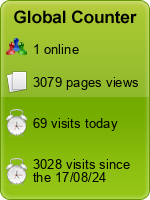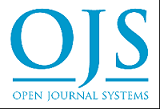Health-seeking behavior in Indonesia especially in outer Baduy ethnic with heart disease
DOI:
https://doi.org/10.33024/minh.v7i1.181Keywords:
Cardiac Events, Health-Seeking Behavior, Modern Medication, Outer Baduy, Traditional MedicationAbstract
Background: Unlike the community in general, the Baduy community in Kanekes Village has a unique way of looking at the modern world, including their sight of modern medicine. Even though they know traditional medicine, in the current context, their traditional medicine efforts have not been able to fully answer the health problems they face today, one of which is cardiac events.
Purpose: This study aims to analyze the factors that influence the pattern of health-seeking behavior of the Outer Baduy community against heart disease
Method: This study is an analytical observational study with a cross-sectional approach to the Outer Baduy community that was diagnosed or suspected of having cardiac problems in 2023. Data was taken using the questionnaire sheets containing data on respondents' characteristics, and their first experience of having heart attack symptoms. The outcome was their health-seeking behavior when facing the circumstances categorized into traditional and modern behavior. The data was analyzed using the Fisher Exact Test to find out the relationship between variables
Results: Thirty-six respondents are involved in this study. Most respondents were male (25/69.4%) and were in the age range from 48 to 76 years old, had an educational background graduated from elementary school (16/44.4%), worked as traders (18/50.0%), had insurance (26/72.2%) and experiencing symptoms of typical heart disease (30/83.3). Most of the respondents seek modern medicine when experiencing a typical heart attack. There is a p-value of more than 0.05 between age, sex, education level, and occupation with health-seeking behavior. Insurance ownership and respondents' experience of feeling heart attack symptoms to health-seeking behavior p values of 0.000 and 0.002 (< α 0.05) respectively.
Conclusion: Most respondents seek modern medical help when experiencing typical heart disease. There is no significant relationship between age, sex, education level, and occupation with health-seeking behavior in heart disease. Insurance ownership and experiencing typical symptoms of heart disease significantly affect the health-seeking behavior of the Outer Baduy community. The results of this study can be a consideration for local health policyholders in creating cardiovascular emergency health education programs for the community. The combination of modern curative medicine and traditional preventive medicine can be one approach in the health sector that can be done by the government to reduce morbidity and mortality due to cardiovascular events in the Baduy community. Further studies are needed to explore the Outer Baduy community's knowledge and perception of cardiovascular events and the barriers they face to getting the necessary medication.
Downloads
Published
How to Cite
Issue
Section
License
Copyright (c) 2024 Malahayati International Journal of Nursing and Health Science

This work is licensed under a Creative Commons Attribution-ShareAlike 4.0 International License.









